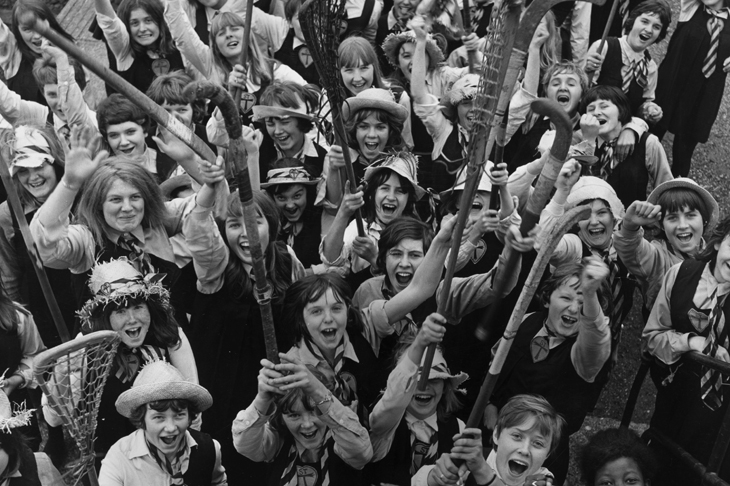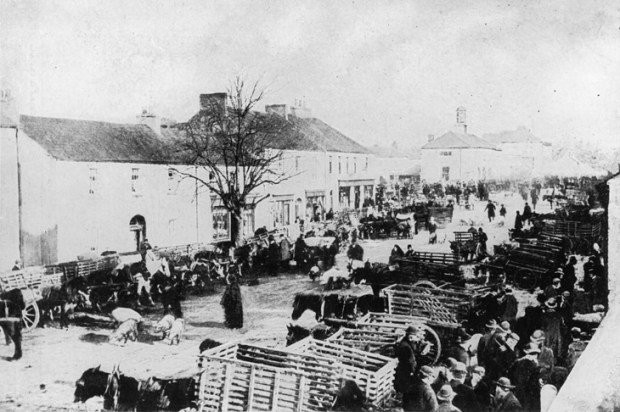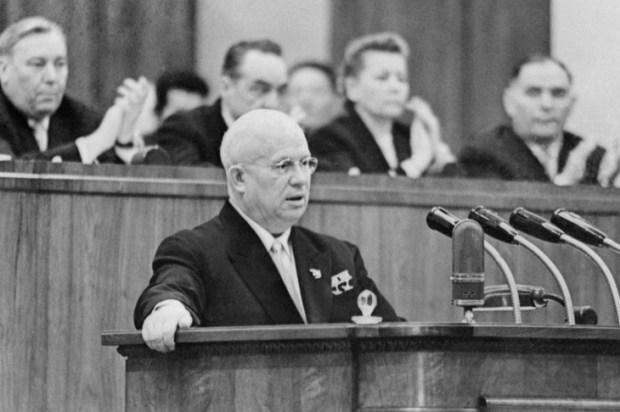It’s not often that books make me laugh aloud. Even books I’m officially finding funny often do no more than make me smile, or emit a sharp soundless puff of breath from the nostrils. But this book made me guffaw. Normally, only P. G. Wodehouse has that effect.
It’s tragicomedy, really. Julie Welch’s subject is a ripe one for tragicomedy, as I should know, having written on it myself: life inside girls’ boarding schools — or in this case, life inside Felixstowe College (founded 1929, closed down 1994) to which Welch went in the early 1960s, and which shaped her whole being to such an extent that she’s convinced her gravestone will read ‘Here lies Julie Welch (R)’ — Ridley being the house she was in, as opposed to Cranmer, Latimer or Tyndale.
Illuminating every comic detail is its dark shadow — some crazed, frustrated matron or housemistress with ‘blackened, seaweedy hair’, or some kind of difficult home life. Julie’s own father (whose mistress usurped her mother and lived with them) was once so drunk when Julie went home that he thought their dog, Rebel, was a cushion and tried to plump him up.
The very fact that Welch has total recall of every detail of school life — including what it was like to have a fire practice using the Abseil Davy Descender Automatic Fire Escape (‘you had to push yourself away from the wall with one hand so you didn’t get skinned by Ridley’s pebbledash’) — just goes to show what a deep impression those crazy establishments made on girls. And then there was the matron with a lisp who stood at the top of the staircase waving a red cloth and crying: ‘I’m the fire, I’m the fire: go down the other thstairth.’ Nothing, for girls who have lived in these establishments, is ever quite as vivid again, and the friendships forged in them are unbreakable.
There are about three comic gems per page. They gather pace when Welch recounts the school train journey from Liverpool Street on her first day as a new girl – she notices the sign saying ‘HARWICH FOR THE CONTINENT’, under which someone has scrawled ‘FRINTON FOR THE INCONTINENT’. A girl called Cherry comes into the carriage and says, ‘The bust exercises were a complete failure. I still haven’t got any bosoms.’
From then on, we enter the behind-closed-doors world of Felixstowe College, where the girls are made to wear so many layers (underpants, bloomers, vests) that they are ‘living games of pass the parcel’. The horrible Ridley housemistress’s nickname is ‘Bretch’, a name that stuck when she herself was a girl at the school and her name was Bridget and she was a wretch. ‘Girl hands on misery to girl,’ Welch wryly notes. Occasionally, fathers made the social faux-pas of saying, ‘Good afternoon, Miss Bretch.’
I laughed aloud at this description of schoolgirls receiving tragic news: Bretch was made housemistress after the fateful morning when the headmistress, Miss Jones (‘Jonah’), announced in chapel that Miss Hoskin (‘Hossy’) had died in the night. ‘Everyone gasped with horror and sadness and then someone giggled, and the giggling spread from pew to pew…’ Yes, it really was like that when anyone announced something sad in assembly.
It’s hard to know which of the countless gems to pick out; but coyness about… you know… might be a good one. The whole subject of menstruation was too embarrassing to mention. If you wanted a sanitary towel you had to ask for ‘the Other Cupboard’. Julie’s own mother referred to it as ‘a little visitor’. Tampons were strictly forbidden by the matron, who told the girls they could wreck their virginity and that it required major surgery to get one removed if it got stuck. About to be caught by a prowling matron while ‘having a go’ with some smuggled Tampax after lights out, a group of girls threw them out of the dormitory window and the next morning the head gardener remarked:‘Themrhododendrons have grown some interesting blooms.’
It’s all bliss. There are some horrifying pre-politically-correct moments such as the headmistress’s remark, when one of her Old Girls gets married to someone from Somalia whom she met at the LSE, that ‘their children will look like streaky bacon’. She’d be sacked on the spot now. Welch throws in some superb 1960s details, such as what it was like when a television self-immolated; and how much she dreaded throughout the Cuban Missile Crisis the prospect of going to lonely, boring Heaven. But the experience of being sent to Coventry because everyone thought she was the Phantom Clothes Strewer was ‘even worse than World War III’.
Got something to add? Join the discussion and comment below.
Get 10 issues for just $10
Subscribe to The Spectator Australia today for the next 10 magazine issues, plus full online access, for just $10.
You might disagree with half of it, but you’ll enjoy reading all of it. Try your first month for free, then just $2 a week for the remainder of your first year.














Comments
Don't miss out
Join the conversation with other Spectator Australia readers. Subscribe to leave a comment.
SUBSCRIBEAlready a subscriber? Log in